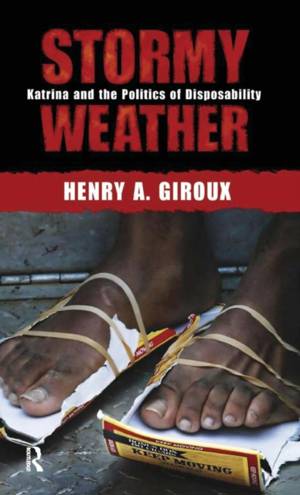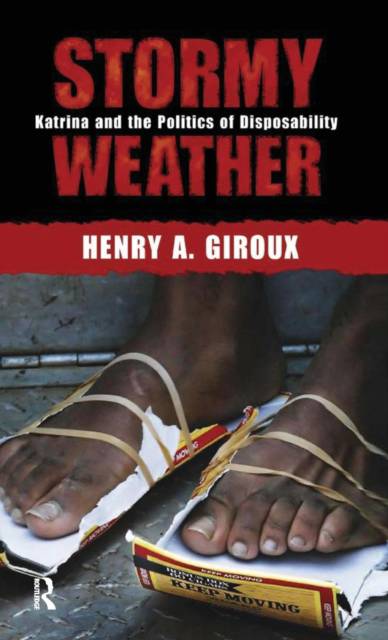
- Afhalen na 1 uur in een winkel met voorraad
- Gratis thuislevering in België vanaf € 30
- Ruim aanbod met 7 miljoen producten
- Afhalen na 1 uur in een winkel met voorraad
- Gratis thuislevering in België vanaf € 30
- Ruim aanbod met 7 miljoen producten
Zoeken
€ 427,45
+ 854 punten
Uitvoering
Omschrijving
"By far the single most important account and analysis of the Katrina catastrophe." David L. Clark, McMaster University In his newest provocative book, prominent social critic Henry A. Giroux shows how the tragedy and suffering in the aftermath of Hurricane Katrina signals a much larger crisis in the United States-one that threatens the very nature of individual freedom and inclusive democracy. This crisis extends far beyond matters of leadership, governance, or the Bush administration. It is a crisis that strikes at the very heart of democracy and must be understood within a broader set of antidemocratic forces that not only made the social disaster underlying Katrina possible, but also contribute to an emerging authoritarianism in the United States. Questions regarding who is going to die and who is going to live are driving a new form of authoritarianism in the United States. Within this form of "dirty democracy" a new and more insidious set of forces-embedded in our global economy-have largely given up on the sanctity of human life, rendering some groups as disposable and privileging others. Giroux offers up a vision of hope that creates the conditions for multiple collective and global struggles that refuse to use politics as an act of war and markets as the measure of democracy. Making human beings superfluous is the essence of totalitarianism, and democracy is the antidote in urgent need of being reclaimed. Katrina will keep the hope of such a struggle alive because for many of us the images of those floating bodies serve as a desperate reminder of what it means when justice, as the lifeblood of democracy, becomes cold and indifferent.
Specificaties
Betrokkenen
- Auteur(s):
- Uitgeverij:
Inhoud
- Aantal bladzijden:
- 160
- Taal:
- Engels
Eigenschappen
- Productcode (EAN):
- 9781594513282
- Verschijningsdatum:
- 1/07/2006
- Uitvoering:
- Hardcover
- Formaat:
- Ongenaaid / garenloos gebonden
- Afmetingen:
- 153 mm x 215 mm
- Gewicht:
- 294 g

Alleen bij Standaard Boekhandel
+ 854 punten op je klantenkaart van Standaard Boekhandel
Beoordelingen
We publiceren alleen reviews die voldoen aan de voorwaarden voor reviews. Bekijk onze voorwaarden voor reviews.








